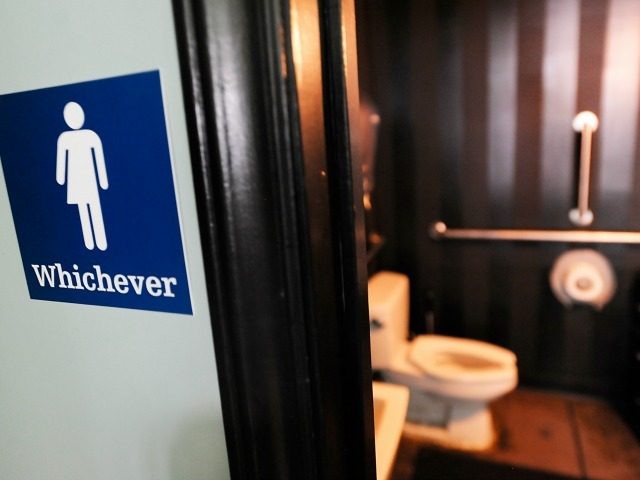Plaintiffs in one of the lawsuits over North Carolina’s HB 2 (the “bathroom bill”) scored a partial victory Friday when a federal district court made clear it was bound by higher-court precedent to rule for the plaintiffs. But that victory may be short-lived, as the U.S. Supreme Court will likely decide this matter in 2017.
The city of Charlotte in North Carolina adopted a transgender ordinance, under which a business would be committing illegal sex discrimination if it did not allow a person to enter whatever restroom they decided to identify with, whether or not their gender identity agrees with their anatomical sex.
State lawmakers responded by passing HB 2, which Gov. Patrick McCrory signed into law, providing in part that sex discrimination in North Carolina would refer only to biological sex, preempting any local ordinances to the contrary (like Charlotte’s), and requiring people to use public restrooms that correspond to their biological sex, as shown on their birth certificate.
Three lawsuits are currently underway in federal district court in North Carolina, challenging HB 2 under both the U.S. Constitution and federal law. The first of those lawsuits is Carcano v. McCrory. It alleges that HB 2 violates the two federal statutes, Title VII of the Civil Rights and the Title IX Education Amendments, as well as the Due Process Clause and the Equal Protection Clause of the Constitution’s Fourteenth Amendment.
On Aug. 26, Judge Thomas Schroeder of the U.S. District Court for the Middle District of North Carolina issued a preliminary injunction blocking HB 2 while the lawsuit is ongoing, a ruling that was compelled by a previous decision by the U.S. Court of Appeals for the Fourth Circuit, which has jurisdiction over North Carolina.
The judge noted that both sides admit HB 2 implicates significant privacy interests, and that North Carolina’s law does not endanger those interests. The issue before the court is whether the state’s law is inconsistent with federal law or the federal Constitution.
A Bush-appointed judge, Judge Schroeder, made clear that he was following higher-court precedent—as he is required to do—rather than expressing his own views on this law, by holding that the plaintiffs “are likely to succeed on their claim that Part I [of HB 2] violates Title IX, as interpreted by the United States Department of Education (“DOE”) under the standard articulated by the Fourth Circuit.”
Schroeder was referring to the Education Department’s new policy announced in a Jan. 7, 2015 letter, redefining “sex” to include gender identity. In the Fourth Circuit’s recent decision in G.G. ex rel. Grimm v. Gloucester County School Board, a panel of judges ruled 2-1 that courts should defer to the Education Department’s redefinition. Lawyers representing the school board will petition the U.S. Supreme Court in the coming days to reverse the Fourth Circuit’s judgment.
Because the Fourth Circuit did not rule on whether HB 2 violates any part of the Fourteenth Amendment, the district court judge was free to rule as he saw fit on those issues. Schroeder then ruled against the plaintiffs and in favor of North Carolina on the equal-protection claim, and ordered additional briefing and arguments on the due-process claim.
The injunction blocking HB 2 will stay in place until the litigation is over, or the U.S. Supreme Court reverses the Fourth Circuit.
Ken Klukowski is senior legal editor for Breitbart News. Follow him on Twitter @kenklukowski.

COMMENTS
Please let us know if you're having issues with commenting.